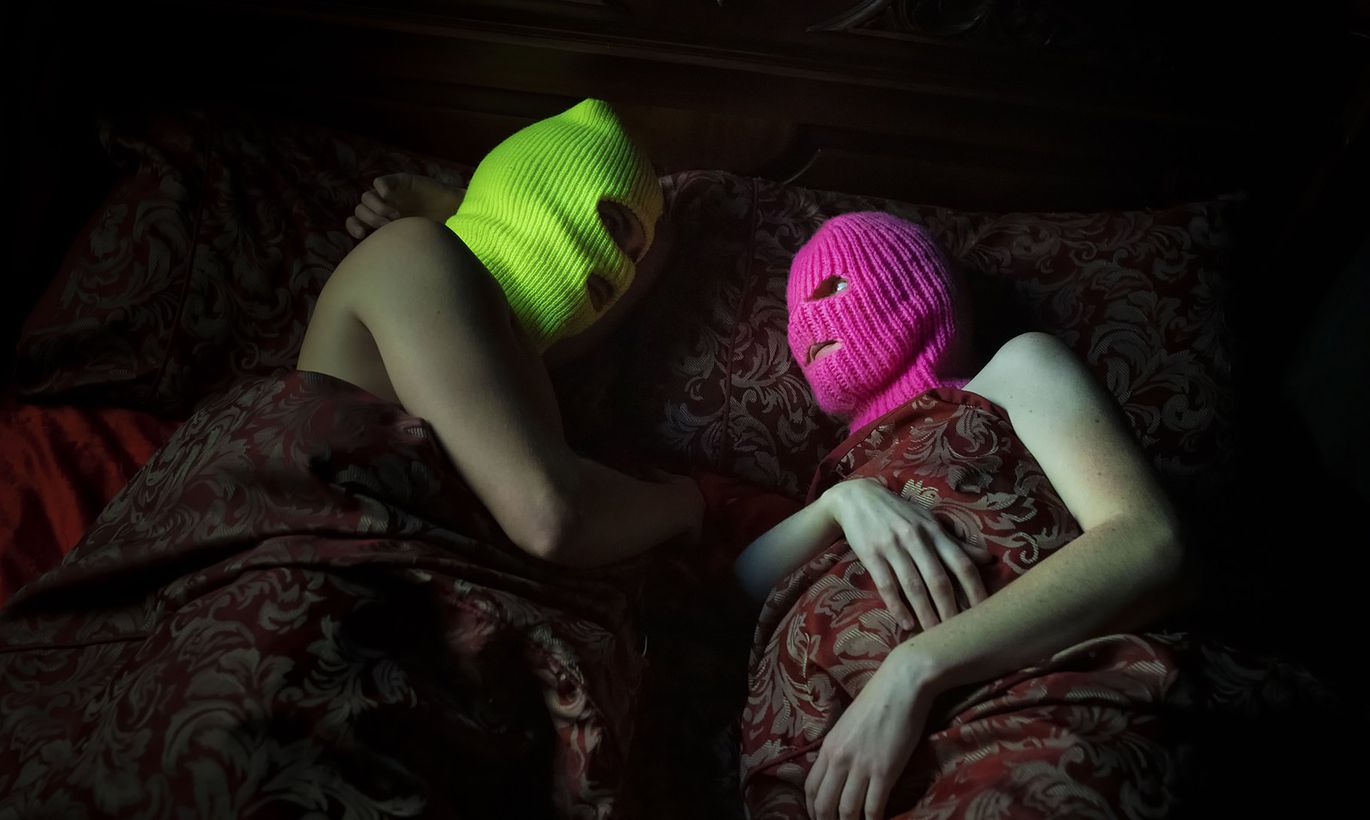As all intellectuals are inclined to do, I would start this piece with some sort of relevant academic quote. Preferably from a writer, philosopher or cultural studies expert who you may know the name of, but are all together unsure of their merits or ideas. If I was to do this however, I would be entirely playing into the parody that the film attempts to question.
Alice, Through The Looking, could be seen as making fun of those who philosophise art and film. Its script is riddled with leading questions and inscrutable answers, from smug characters. However, everything about the plot entirely up to speculation. Is it a jovial take on lucid imagination, or is it something more dark hiding beneath the veneer?
Both are simultaneously true of Adam Donen’s film, which he has directed and written as an “anarchic retelling (of Alice) transposed to Brexit London”. I was interested to see what this means in terms of the imagery of the film, and was not disappointed.
Alice (Saskia Axten) finds her “Rabbit” (Elijah Rowen) at a warehouse rave and pursues him through Shoreditch back alleys and Bankside walkways past drunk city boys, airhead hipsters and various armchair academics. You could see this as on the nose for an “anarchic retelling”, but the perplexing atmosphere of the film keeps the more outlandish aspects engaging.
This is to say, a viewer will being focusing more on what level of awareness the narrative is operating at, than the many out-of-left-field philosophical comments that characters seem desperate to exclaim. The film is at a constant state of questioning it’s own motives, and will infrequently, but reliably switch lens to show another level of metacommentary for itself.
Whether this means cutting to two policemen reviewing scenes of the film via CCTV, or cutting to Slavoj Žižek as himself reacting to the script, the narrative is restlessly trying to explain itself, while also remaining mysterious. This is why I think the Alice in Wonderland story is such a perfect analogue for the story Donen is trying to tell, since the book too tries hard to beguile the reader.
The film’s ambition in storytelling is aided mostly by the keen and varied performances by its cast. They are varied in the sense that some actors are expected to move between pantomime melodramatics and Lynchian archetypes, as is the case for Joerg Stadler in his role as The Caterpillar, while still others play a more straight forward terrifying presence, like Alan Ford as The Chairman.
Saskia Axten bares the weight of the scripts needs the most in my opinion, constantly having to transition between modes of shock and joy, friendly and distant or aware and naïve; all with impressive fluidity.
This is a film that is hard to crack, and I’m not sure I’m all together there with it’s premise or it’s answers. Visually, I was fascinated with it’s creativity concerning the more surreal scenes, and it was clear the design team did a lot with the resources they had. It is a worth a watch for those who consider themselves clued in, when concerning film as an art form.
Maybe you’ll get closer to the film’s answers than I did.














No Comment